Could Margaret Thatcher’s legacy be taken apart by the same force that brought her to power 40 years ago?
A sea change brought in the Iron Lady at the 1979 general election. Four decades on from that day, believes Sean O’Grady, we may be on the cusp of a similar shift – this time to the left
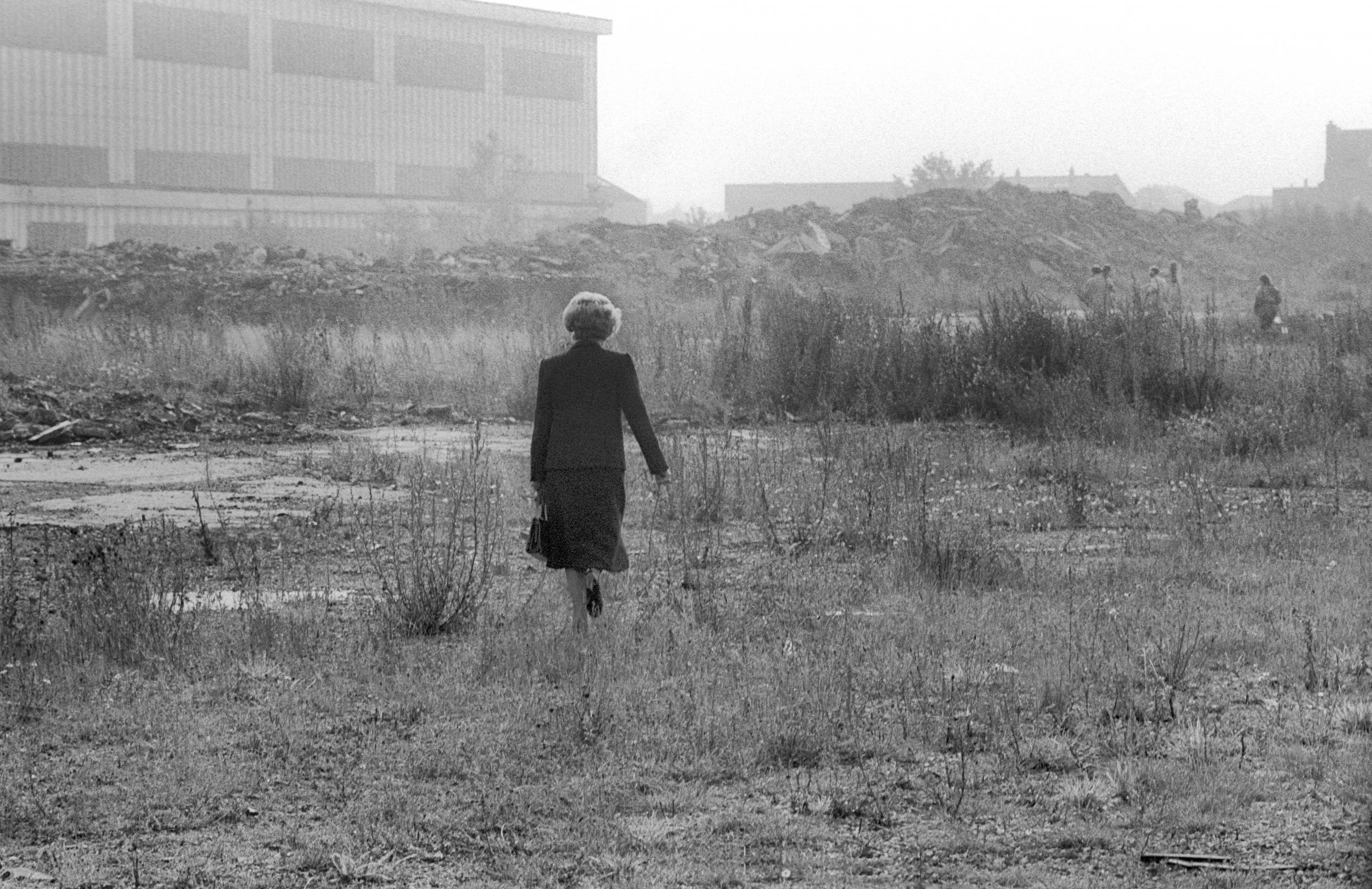
The story goes that Margaret Thatcher, long after she had left office, was asked what her greatest achievement had been. “Tony Blair and New Labour,” was the immediate, bright-eyed reply. By that she meant even the Labour Party had accepted the economic reconstruction of the country that began exactly four decades ago, when she won the general election of 1979. Socialism, in the sense she had fought against as a force in British politics was, if not extirpated, then certainly dormant.
If the anecdote is correct, then her abiding legacy – that long-lasting Thatcherite settlement, largely accepted by Blair – lies in some jeopardy today. Jeremy Corbyn closes in on No 10; Theresa May’s pragmatic government provides a model in how not to “do politics”; and there is something of a leftward shift in public opinion. Is there a sense of change in the air again?
The 1979 election is counted by historians as one of the most significant of the 20th century. The election of 1906 brought to power a Liberal government that laid the foundations for the welfare state; the Labour government of 1945 made the welfare state complete with the NHS, nationalised of the “commanding heights” of the economy, and embarked on the dissolution of the British Empire; and the Thatcher government elected in 1979 set about reversing much of that established but failing social democratic post-war consensus.
Even at the time, the 1979 contest was granted an historic status, at least by some. For the Labour prime minister that Thatcher vanquished, James Callaghan, defeat came as no surprise. He intimated as much to one of his closest advisers, Bernard, now Lord, Donoghue near polling day, 3 May. When a rogue poll was published offering him a flicker of hope that his beleaguered government might yet win another term, Callaghan demurred: “I should not be too sure. You know, there are times, perhaps every 30 years, when there is a sea change in politics. It then does not matter what you say or what you do. There is a shift in what the public wants and what it approves of. I suspect there is now such a sea change – and it is for Thatcher.”
In 2019 we are, theoretically, due another “watershed” election (or referendum) – perhaps undoing the historic commitment to Europe and what Maggie put in place.
I remember the day Thatcher arrived in Downing Street very well, watching those famous scenes of her on the steps of Downing Street on the BBC Nine O’Clock News – no rolling news channels in those days (and we’d only just got a colour TV set). Her words – a prayer by St Francis of Assisi – struck me then, and still today, as such a strange choice, promising the kind of national reconciliation that such a combative politician was unlikely to want to deliver: “Where there is discord, may we bring harmony. Where there is error, may we bring truth. Where there is doubt, may we bring faith. And where there is despair, may we bring hope.”
It was much assumed at the time, especially in the Labour Party (of which I was then a precocious member), that this apparition of Victorian values would soon be kicked out of office. Thatcher’s insane economic experiments with monetarism, mass unemployment and defeating the unions would fail spectacularly, it was confidently predicted.
After all, in 1970 her immediate Conservative predecessor, Edward Heath, had also been elected on a programme of radical market-driven change, resolving to tame the trades unions. After little more than three years of battling unsuccessfully he was thrown out of office in an election called, ironically enough, on the slogan “Who governs Britain?” – meaning him or the coal miners’ union, the NUM. “Not you, mate,” was the electorate’s reply.
Having suffered power cuts, a state of emergency, a three-day working week and what he himself described as “a harder Christmas than we have known since the war”, Heath’s defeat seemed to prove that the UK would not be ruled without the consent of the trades unions.
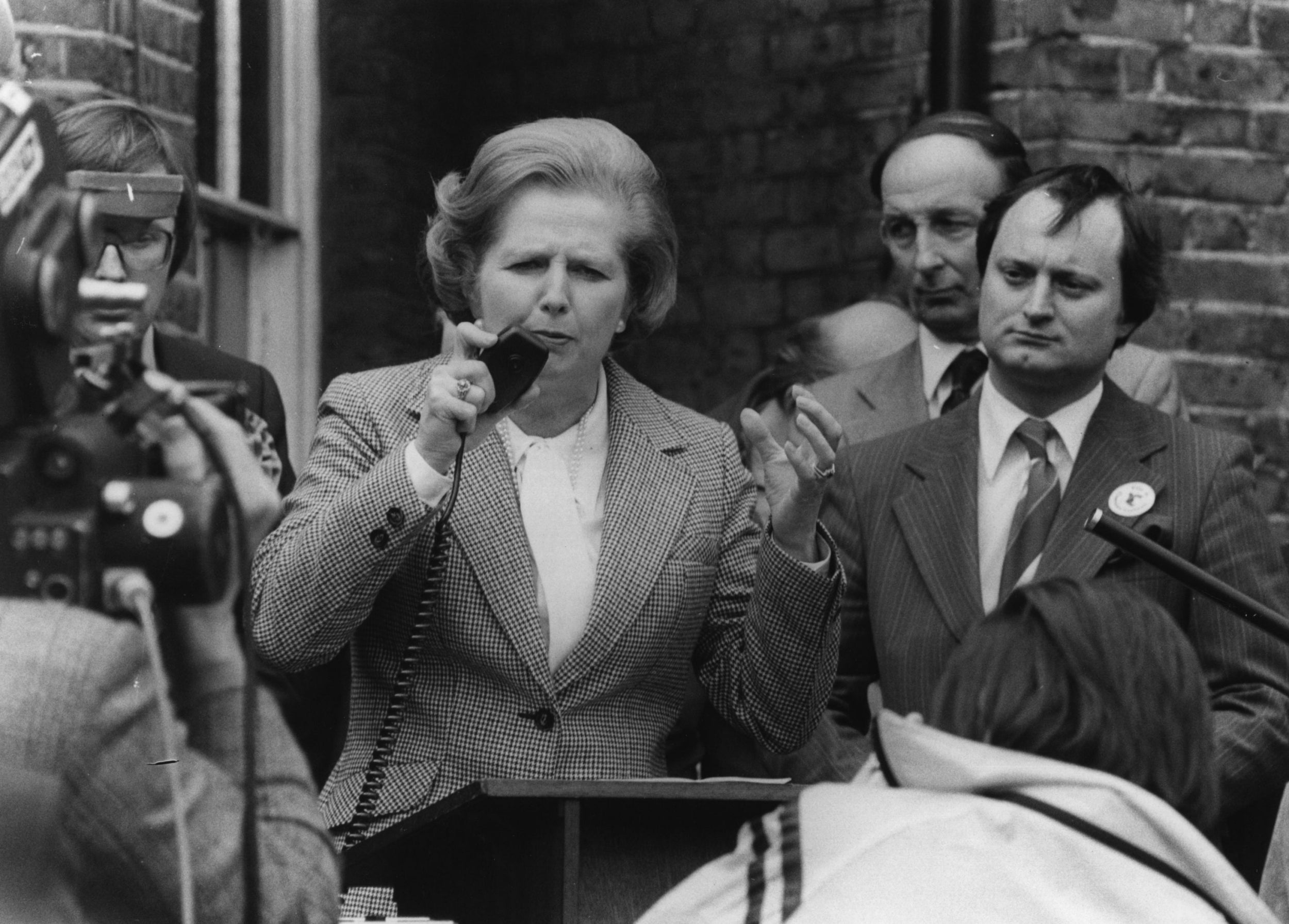
Why wouldn’t Thatcher also come a cropper? No reason, except that, in the intervening years the unions had abused their position even more. This time they had broken a Labour administration headed by a man, Callaghan, who was once a trade union official himself (for the white-collar Inland Revenue Staff Federation), and prided himself on close links with the union “barons”. Thus the myth that the UK could be governed only with the agreement of the unions – which meant the Labour Party – was broken; instead the choice was whether the nation wished to be governed by the unions or not.
It is difficult at this distance to appreciate the scale of union power in the Britain of the 1970s. They could make or break governments of any party, and they did. They defied parliament. The Winter of Discontent in 1978-79 offered plenty of material for Thatcher, for the anti-union press (then more powerful and just as vicious) and for the average British citizen to believe something had gone badly wrong with the way the country was run.
It is a lost world. The strikers – many pathetically poorly paid – refused to work because the government tried to run a “pay policy”, attempting to limit the rise in wages across every worker in the economy to, at that time, 5 per cent in a year. Thatcher, of course, promised an end to the farce.
When Callaghan returned to freezing Britain, tanned from an international summit in Guadeloupe, he proffered the opinion that most people around the world would not share the view that there was mounting chaos. The out-of-touch complacency was, if inaccurately, devastatingly reflected in a telling Sun headline: “Crisis? What Crisis?”
Everyone seemed to be on strike – municipal workers such as school caretakers, “bin men” and “dinner ladies” (I use the antique terms deliberately), NHS ancillary workers, ambulance drivers, lorry drivers, petrol tanker drivers, print workers, car workers, bakers. The scenes of black bags of rubbish strewn around streets would haunt Labour for years. Schools and petrol stations closed, hospitals allowed emergencies only, meals on wheels stopped.
Only in 1997 – after Blair had promised to leave the Tory trade union laws virtually alone – did the Conservatives stop using the increasingly dated footage as propaganda. Yet the scenes were not “fake” news. There has been some exaggeration, but when grave-diggers went on strike in Liverpool and Tameside, the Daily Mail could justifiably run the headline: “Now they won’t let us bury our dead!”
There was plenty to be disillusioned by and only one politician provided much hope, real or imagined, about the future.
The cabinet pondered how to get “blackleg” strike-breaking grave diggers past the cemetery gates and through the mass picketing – a riot at a funeral would have been all the papers needed to hang the ultimate shame around the neck of Callaghan and his hapless ministers.
By 1979, then, the unions were resented for their abuse of power. Combined with the activities of the IRA (who assassinated Airey Neave MP, one of Thatcher’s closest friends, and Lord Mountbatten that year), as well as occasional violence from the political extremes, many commentators were asking whether Britain was governable. Books came out with titles such as Britain in Agony.
Routinely the UK was ranked as the “sick man of Europe”, a visibly decaying, grey, grim land of strikes and failing public services. Things simply didn’t work. You’d wait six months to have a landline installed by the nationalised Post Office Telephones. The railways under British Rail were a loss-making mess, infamous for inedible sandwiches and filthy, elderly rolling stock. The British Steel Corporation, the National Coal Board, National Express, the National Bus Company, British Shipbuilders, British Leyland, the Royal Mail, British Airways and various other nationalised industries, owned and subsidised by the taxpayer, sometimes lost millions a week.
Inflation had topped 20 per cent in 1975 and was in double figures again in 1979. Unemployment, though to rise even steeper under Thatcher, was at post-war highs – about double 2019 rates. By the time the Winter of Discontent had ended, the country – including many trade union members and ex-Labour voters – had had quite enough. One of the curiosities of 1979 was that it marked both the peak of trade union membership in the UK – at 13.2 million, about half the workforce nominally members of the “Labour movement” – and the largest swing against Labour at a general election since 1931.
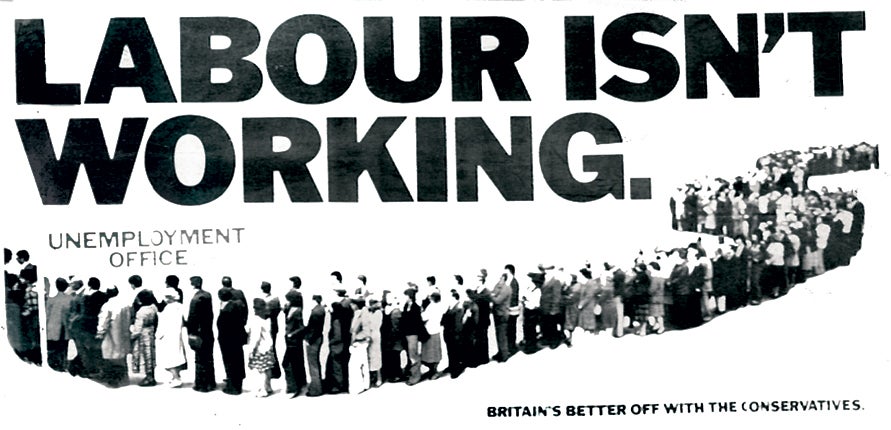
The only growth industries in the country were North Sea oil – there by accident – and punk rock. Then, as now, there was some sentiment that immigration was too high, with the far right taking advantage (though Thatcher succeeded in attracting and neutralising much of the National Front’s appeal when she made a – probably – calculated “gaffe” about people feeling “swamped” in some communities). Every year the stagnant British economy fell further behind living standards in France and Germany. Sterling was almost continually on the slide.
We had Morecambe and Wise, but Britain was not a happy place. The social democratic paradise that Labour and Conservative governments had tried to build since 1945, based on consensus around the welfare state, progressive taxation, a commitment to full employment and Keynesian demand management of the economy, had collapsed.
The nation was bust. In 1976 we had to ask the IMF for a loan, mortgaged on North Sea oil, because no one in the real world – the Americans, the Germans, the Japanese, the pension funds – was willing to lend money to HM Government. It was humiliating. Comprehensive education, high rise council blocks, local government reform, decimalisation, Concorde (an expensive commercial flop), the Jeremy Thorpe affair, the social security system – all were lesser but potent sources of disappointment for voters. There was plenty to be disillusioned by and only one politician provided much hope, real or imagined, about the future.
That was why Thatcher won the election – it was the end of an era, and the voters realised it. In a phrase she was later to make her own, the feeling in 1979 was that “there is no alternative”. Thatcher enjoyed the best advice in public relations; the Saatchi and Saatchi “Labour Isn’t Working” poster of 1978 remains classic.
She even had the first “battle bus” fitted with a private radio-telephone. (It stopped working when the bus went under a low bridge and the aerial was knocked off.) More than all that, though, she won the argument, based on the evidence surrounding every voter that past policies had failed and would fail again.
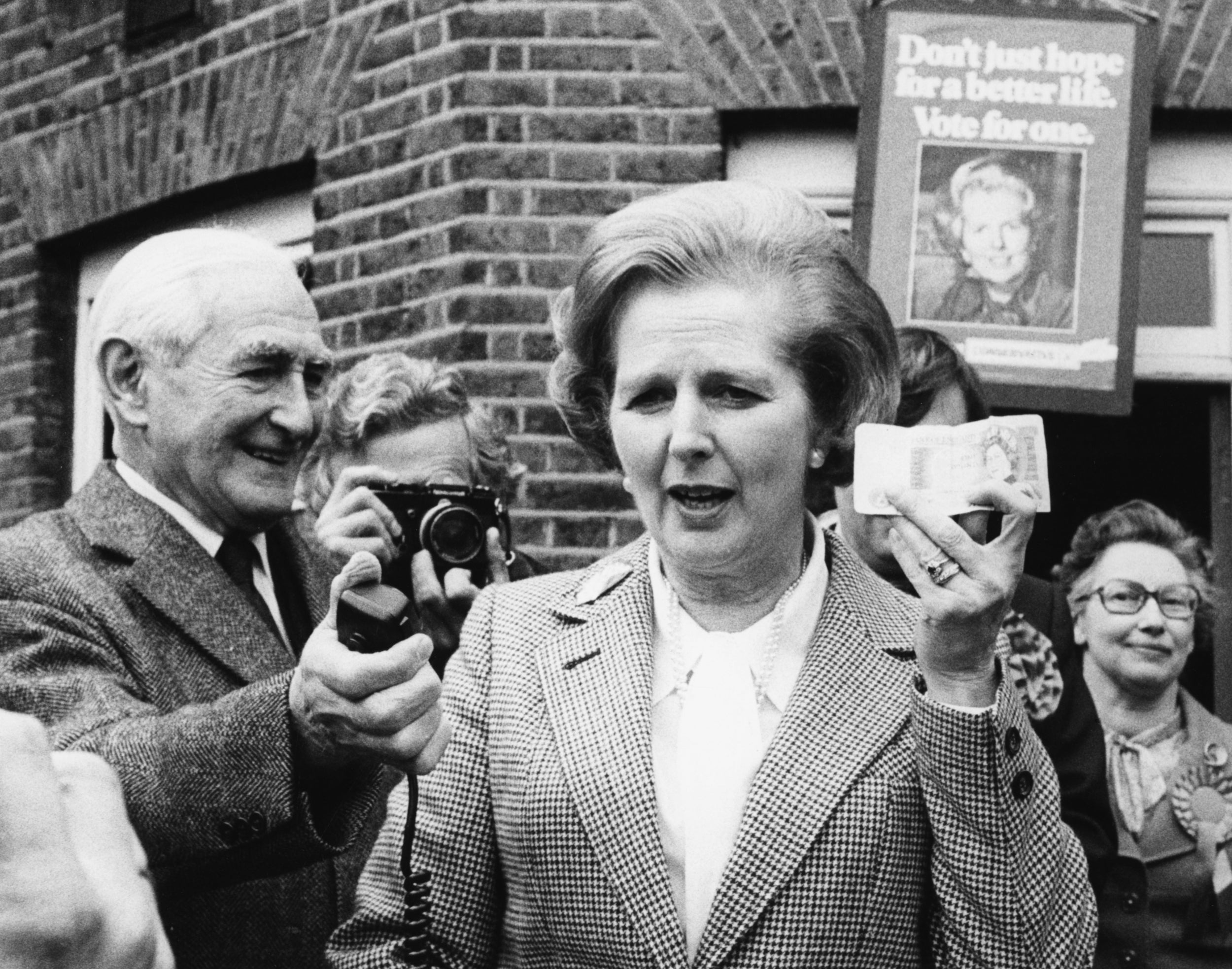
Her manifesto was a model in travelling light – few specifics, plenty of aspiration. To restore the health of our economic and social life. To restore incentives so that hard work pays, success is rewarded and genuine new jobs are created in an expanding economy. To uphold parliament and the rule of law.
Yet in opposition from 1975 to 1979, Thatcher, whose only top job had been education secretary, was regarded as strident, extreme and unproven, always lagging behind prime minister Callaghan in the personal ratings. Callaghan succeeded (in those sexist days) in patronising her as “the little lady” who would one day learn the ways of the world.
The Thatcher revolution, in other words, was far from pre-ordained. What made the difference was that sea change in the public mood. Before that, in the autumn of 1978, there was talk of Sunny Jim cashing in on relatively subdued inflation and a pickup in economic growth and prosperity. He chose not to, gambling on a better 1979, and failed in the most spectacular manner possible.
Are we ready for another sea change in 2019? It is entertaining to speculate what Thatcher would have made of Jeremy Corbyn (and they did overlap as MPs from his arrival in the Commons in 1983 to her departure in 1992). She might well have rather liked him, as she had a soft spot for those she recognised as fellow “conviction” politicians, even if they were of the left.
Figures such as Michael Foot, Tony Benn and, especially, Eric Heffer earned her respect and even affection; she openly despised Neil Kinnock, who moved from a sports-jacketed soft lefty unilateralist into a dark blue-suited centrist almost as soon as he had won leadership on the back of his supposed socialist credentials. Corbyn she would no doubt have thought was a man who followed the dictum of her beloved father, Alderman Roberts of Grantham, who taught her never to change her opinions just because it was fashionable to do so.
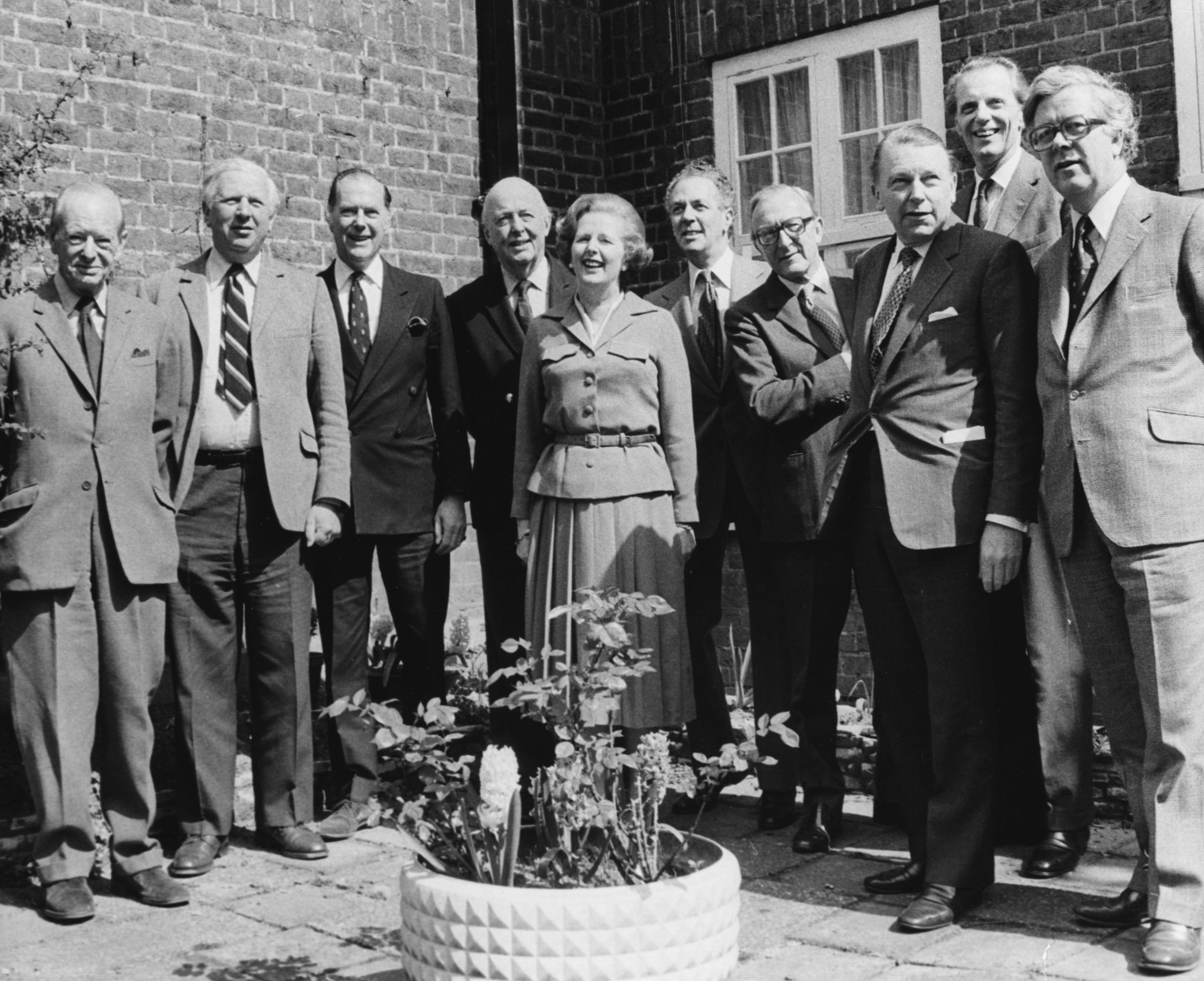
In a way you can, apart from the last bit, almost imagine Corbyn making parts of the speech Thatcher made in the 1979 campaign on a visit to Swansea: “I am a conviction politician. The Old Testament prophets didn’t merely say, ‘Brothers, I want consensus.’ They said, ‘This is my faith and vision. This is what I passionately believe. If you believe it too, then come with me.’ Tonight I say to you just that.”
Corbyn is hardly the smart, skilful, often shrewd and careful politician Thatcher usually was, but he has more in common with the Iron Lady than the vacillating, managerial civil servant manque Theresa May, who might be thought a more obvious parallel. Indeed May, presiding over a minority government habitually suffering defeats and relying on a pact with a smaller party, resembles Callaghan quite closely. The next sea change may be for Corbyn, conviction politician, if it has not already hit us through Brexit.
A further personal note, if I may. In 1979, as I watched Thatcher winning what was to be the first of three successive general elections, I felt two things. First, this woman means business.
Second, I surmised, she will probably be around for longer than the Labour Party seem to think. So it proved. I was 17 when she came to power and 35 when Blair finally evicted John Major’s fag-end Conservatives from government – a fact that never fails to stun.
Looking back from the 21st century, which in 1979 was still a matter of science fiction, we can see just how necessary most of her reforms were to make the economy work again, raise productivity, make new technology and new enterprise a possibility, and attract inward investment to a land where management could manage their businesses without being taxed to pay for lame ducks. Even so, unless you had money, the Thatcher years certainly weren’t much fun at the time, and some of us could see that pain coming.
I look towards the Corbyn sea change, if that’s what it is, with no less trepidation than I did the Thatcher revolution, and with considerably less hope that the sacrifices to be made will be worth it.
I certainly pray we will not have to relearn the lessons so harshly learned in the 1970s, then relive the remedies of the 1980s. We really don’t want to go through all that again.
Subscribe to Independent Premium to bookmark this article
Want to bookmark your favourite articles and stories to read or reference later? Start your Independent Premium subscription today.
Join our commenting forum
Join thought-provoking conversations, follow other Independent readers and see their replies
Comments